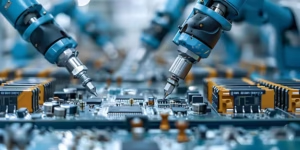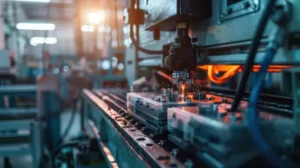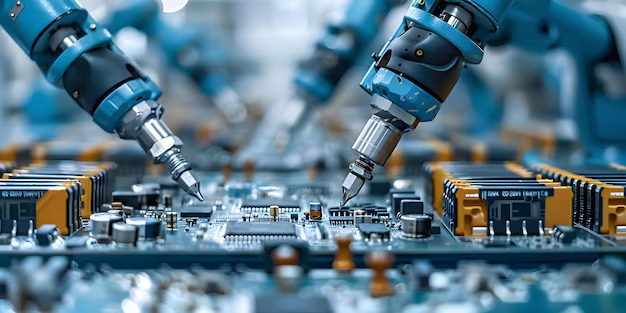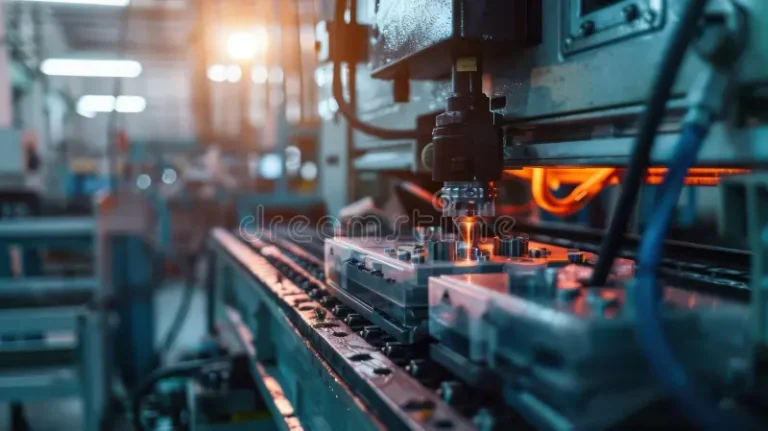In today’s world, safety and reliability in vehicles are paramount. With the rise of technology, ensuring that vehicles are in optimal condition has become more efficient and precise. Cox Technology to inspect vehicles is at the forefront of this transformation, providing innovative solutions for vehicle inspections that enhance safety, reduce costs, and streamline processes. This article will delve into the various aspects of Cox Technology, exploring its functionalities, advantages, and future developments in vehicle inspections.
Understanding Vehicle Inspections
Before diving into Cox Technology, it’s essential to understand the significance of vehicle inspections.
What is a Vehicle Inspection?
A vehicle inspection is a thorough assessment of a vehicle’s components and systems to ensure they meet safety standards and operate efficiently. Inspections can be mandated by law or recommended by manufacturers to maintain vehicle safety and performance. Common inspection areas include:
- Brakes: Ensuring the braking system functions correctly is vital for safety.
- Lights: Headlights, taillights, and turn signals must be operational for visibility and communication with other drivers.
- Tires: Inspecting tire tread and pressure can prevent blowouts and ensure optimal performance.
- Engine: Monitoring engine performance helps to identify potential issues before they become severe.
- Exhaust System: Checking for leaks and emissions compliance is crucial for environmental protection.
Why Are Vehicle Inspections Necessary?
Vehicle inspections serve several purposes:
- Safety: Regular inspections help identify and rectify issues that could lead to accidents.
- Regulatory Compliance: Many regions require vehicles to undergo periodic inspections to ensure they meet legal safety standards.
- Preventive Maintenance: Inspections can detect problems early, allowing for timely repairs that can save money in the long run.
- Insurance Requirements: Some insurance policies may require regular inspections to maintain coverage.
By leveraging advanced technology, like Cox Technology, the inspection process can be streamlined and made more effective.
What is Cox Technology?
Cox Technology refers to a suite of digital tools and systems designed to enhance vehicle inspections. By integrating advanced technologies, Cox aims to provide a comprehensive inspection process that is both efficient and effective. Key components of Cox Technology include:
1. Digital Inspection Tools
Cox Technology utilizes digital inspection tools that enable technicians to conduct assessments with precision. These tools can take high-resolution images, record data digitally, and generate instant reports. The transition from manual to digital inspections helps reduce errors and improve efficiency.
2. Advanced Sensors
Modern vehicles are equipped with a range of sensors that monitor various functions. Cox Technology incorporates these sensors into the inspection process, allowing for real-time data collection on:
- Tire Pressure Monitoring Systems (TPMS): Ensures tires are properly inflated for safe driving.
- Oil Level Sensors: Monitors engine oil levels to prevent engine damage.
- Brake Pad Wear Sensors: Alerts technicians when brake pads need replacement.
3. Mobile Applications
Cox Technology often includes mobile applications that allow technicians to conduct inspections on-the-go. These apps provide access to inspection checklists, enabling technicians to document their findings easily. Furthermore, they can communicate directly with vehicle owners, providing real-time updates on inspection results.
4. Cloud-Based Data Storage
Cox Technology leverages cloud computing to store inspection data securely. This allows for easy access and sharing of information among technicians, vehicle owners, and service centers. Cloud storage also facilitates the analysis of historical data, which can be crucial for identifying long-term trends. You Can Also Read This Comprehensive Guide to Composite Material Assembly and Connection Technology Books
How Cox Technology Works
Understanding how Cox Technology operates is vital for appreciating its benefits. Here’s a step-by-step look at the vehicle inspection process using Cox Technology:
Step 1: Initial Assessment
The inspection begins with a preliminary assessment. Technicians use Cox’s digital inspection tools to gather initial data on the vehicle’s condition. This may involve checking the vehicle’s identification number (VIN) and reviewing previous inspection records.
Step 2: Utilizing Sensors
Next, technicians utilize various sensors integrated into the vehicle. For instance, they may connect diagnostic tools to the vehicle’s onboard diagnostics (OBD) system. This system monitors the vehicle’s performance and can provide real-time information on engine health, emissions, and more.
Step 3: Conducting the Inspection
Using the mobile application, technicians follow a detailed inspection checklist. Each component is examined thoroughly, and data is recorded digitally. High-resolution images may be taken to document any issues visually.
Step 4: Data Analysis
Once the inspection is complete, the collected data is analyzed. Cox Technology utilizes advanced algorithms to assess the information, identifying patterns and potential areas of concern. This analysis provides insights into the vehicle’s overall health and maintenance needs.
Step 5: Reporting
Finally, technicians generate a comprehensive report detailing the inspection results. This report includes recommendations for repairs or maintenance, complete with visual documentation. The report can be shared with the vehicle owner instantly through the mobile app or email.
Benefits of Using Cox Technology for Vehicle Inspections
The adoption of Cox Technology in vehicle inspections offers numerous advantages. Here are some key benefits:
1. Enhanced Accuracy
Cox Technology provides a level of accuracy that traditional manual inspections often lack. Digital tools and sensors minimize human error, ensuring that every aspect of the vehicle is thoroughly evaluated.
2. Faster Inspections
With advanced tools, inspections can be completed significantly faster. This efficiency saves time for both technicians and vehicle owners. Quick inspections allow for immediate servicing, reducing downtime for the vehicle.
3. Comprehensive Reporting
Cox Technology generates detailed reports after inspections, highlighting any issues found and providing recommended solutions. These reports can be shared easily with vehicle owners, ensuring they fully understand their vehicle’s condition.
4. Cost Savings
Identifying problems early can prevent costly repairs later. Cox Technology promotes proactive maintenance practices, helping vehicle owners save money over time. Regular inspections can extend the vehicle’s lifespan and enhance its resale value.
5. Improved Safety
The ultimate goal of vehicle inspections is to ensure safety. By utilizing Cox Technology, vehicle owners can be confident that their vehicles are in safe working condition, protecting themselves and others on the road.
The Role of Cox Technology in Different Vehicle Types
Cox Technology can be applied to a variety of vehicle types, each with unique inspection requirements. Let’s explore how it caters to different categories of vehicles:
1. Passenger Vehicles
Passenger vehicles, including cars and SUVs, benefit greatly from Cox Technology. Regular inspections ensure that these vehicles are safe for daily use. With digital tools, technicians can quickly assess key components like brakes, tires, and lights.
2. Commercial Vehicles
For commercial vehicles, such as trucks and buses, regular inspections are crucial for operational efficiency and safety. Cox Technology helps fleet managers ensure their vehicles are compliant with regulations and maintain high safety standards.
3. Electric Vehicles (EVs)
Electric vehicles present unique challenges during inspections. Cox Technology accommodates these vehicles by focusing on battery health, electric motor performance, and charging systems. With specialized sensors, technicians can accurately assess the condition of EVs.
4. Heavy Machinery
Heavy machinery, like construction equipment, requires rigorous inspections to prevent downtime and accidents. Cox Technology provides tailored solutions for these machines, allowing for thorough assessments of mechanical components and safety features.
The Future of Vehicle Inspections with Cox Technology
As technology continues to evolve, so too does the potential for vehicle inspections. Cox Technology is poised to lead this transformation. Here’s a look at what the future may hold:
1. Integration of Artificial Intelligence (AI)
Artificial intelligence is set to play a significant role in future vehicle inspections. AI can analyze data more efficiently than humans, leading to quicker and more accurate assessments. This technology will help predict maintenance needs based on historical data.
2. Increased Automation
Automation is likely to transform vehicle inspections. Robotic systems may soon handle many inspection tasks, reducing the time required for inspections. This shift will free up technicians to focus on more complex issues that require human expertise.
3. Remote Inspections
With the advent of remote technology, inspections may increasingly be performed remotely. Cox Technology could allow technicians to inspect vehicles virtually, using video feeds and sensor data. This would provide convenience for vehicle owners while maintaining high safety standards.
4. Sustainability and Eco-Friendliness
Future vehicle inspection technologies may focus on sustainability. By identifying and fixing issues that contribute to emissions and waste, Cox Technology could help reduce the environmental impact of vehicles. This focus on sustainability aligns with global efforts to combat climate change.
5. Integration with Smart City Initiatives
As cities evolve into smart cities, the integration of vehicle inspection technologies will become even more critical. Cox Technology could be integrated into city infrastructure, allowing for real-time monitoring of vehicle conditions and compliance with regulations.
Case Studies: Cox Technology in Action
Case Study 1: A Local Automotive Shop
A local automotive shop adopted Cox Technology to enhance its vehicle inspection process. With digital tools and mobile applications, the shop reduced inspection times by 50%. Technicians found it easier to document findings, and vehicle owners appreciated receiving instant reports on their vehicles.
Case Study 2: A Commercial Fleet Management Company
A commercial fleet management company integrated Cox Technology into its operations. By leveraging advanced sensors and cloud-based data storage, the company improved its inspection process, ensuring compliance with safety regulations. This integration led to a 30% reduction in maintenance costs over two years.
Case Study 3: A Public Transportation Agency
A public transportation agency implemented Cox Technology to enhance the safety of its fleet. With remote inspections and AI-driven data analysis, the agency could proactively address maintenance needs. This initiative resulted in a 25% reduction in service interruptions due to vehicle issues.
Conclusion
Cox Technology is revolutionizing vehicle inspections, providing enhanced accuracy, speed, and safety. By leveraging digital tools, sensors, and cloud-based solutions, Cox Technology is at the forefront of modernizing the inspection process. As we move towards a future where technology plays an even more significant role in our lives, Cox Technology is poised to lead the way in ensuring that our vehicles remain safe, reliable, and efficient.








